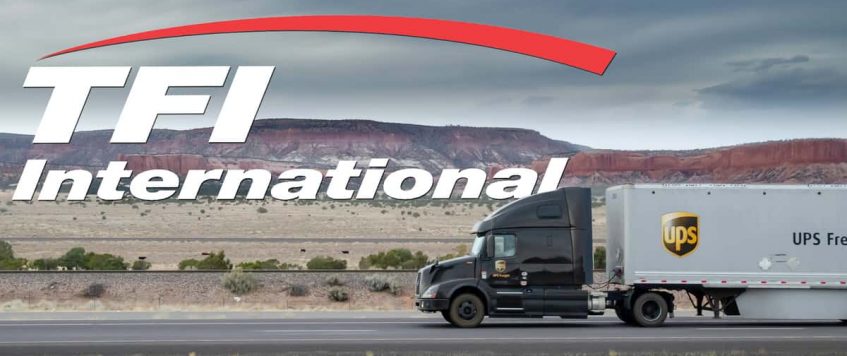-
28
Jul
TFI confronts unprofitable truths in UPS Freight turnaround
CEO says company taking hard line on shippers that weren’t paying enough
TFI International’s dramatic improvement to the profitability of the former UPS Freight business came as the Canadian company began confronting the “low-hanging fruit” of the LTL carrier’s unprofitable freight and shippers, CEO Alain Bedard said.
“We just scratched the surface,” Bedard told financial analysts on Monday evening after TFI delivered a stellar second quarter.
TFI (NYSE:TFII) had made no secret of plans to tackle unprofitable business when it announced the $800 million deal in January. But not this far or this fast: The U.S. LTL business, rebranded as TForce Freight, had an operating ratio just over 90% in the quarter — a remarkable feat for a business that had been running at 99%.
Cowen analyst Jason Seidl, in a note to clients, called the TForce result “well ahead of expectations.” The firm had expected the unit to break even during the quarter, Seidl wrote, and was surprised when TFI preannounced that TForce’s operating ratio hit below 95% in the quarter.
Working in TFI’s favor: a good market, a quarter that was historically UPS Freight’s best and a momentum toward profitability ahead of the acquisition.
“They were going to start making money,” he said. “But would they have run a 10-point OR in Q2? I don’t know.”
Targeting freight, rates that ‘don’t fit network’
What Bedard did make clear, however, is that TFI moved aggressively to target freight or rates that “don’t fit the network” with large shippers while restoring accessorial charges that have been waived.
He noted that the carrier used to do about 1,500 shipments a day out of about 34,000 total for under $100 a day.
“You lose your shirt on that,” Bedard said. “If you stop doing that, it’s addition by subtraction. That’s one example that we were able to do fast. If you had asked me, ‘You think that these guys ship bins for $100?’ I would have said, ‘No, impossible.’”
Bedard said TFI is having a lot of conversations with shippers that it views as not paying enough. He pointed to one recent negotiation in the current quarter with a major account that the carrier was servicing at a loss.
“We were running this account with a 120 OR,” Bedard said. “What were we smoking when we gave the rates to this guy? … So July 1, we address the situation with the shipper. We address a lot of situations like that.”
He acknowledged that the charges will drive customers away.
“You cannot correct the situation, whereby the customer is taking advantage of you and for sure is going to say no and he’s going to walk. But he may come back,” Bedard said. “We win some, we lose some, but at the end of the day we correct the situation with the quality of the revenue.”
UPS Freight had long struggled prior to the acquisition. A comparatively small part of UPS’ business, it also was burdened by shipper contracts that bundled multiple services from the Atlanta-based company.
Beyond the shipper contracts and pricing, TFI is tackling certain quirks in the business that have been a drag on performance. They included residential deliveries and cash-on delivery service, Bedard said.
“When you’re running in downtown LA or the suburbs of LA, or New York, with an LTL truck doing [residential deliveries], it’s a killer,” Bedard said.
Bedard: Teamsters no barrier to TForce Freight’s success
In the coming quarters, TFI will be focusing on bringing down costs as well, Bedard said. One big area, he said, is the size of cargo claims, with the aim of getting it to 0.25% of revenue. He also expects a renewal of the fleet to bring down maintenance costs.
Bedard said he expects TForce’s operating ratio to hit below 90% “in the next three quarters.” He pointed to TFI’s Canadian LTL operation, and its 78% operating ratio in the last quarter “in a terrible market compared to the U.S,” as evidence that the company can deliver.
He also reiterated that TForce Freight’s large unionized workforce — with 11,000 Teamsters members — poses no barrier to TFI’s plans, citing the company’s experience in Canada.
“Most of our Canadian operation is unionized with the Teamsters, and we do really well,” he said.
by Nate Tabak at Freightwaves

